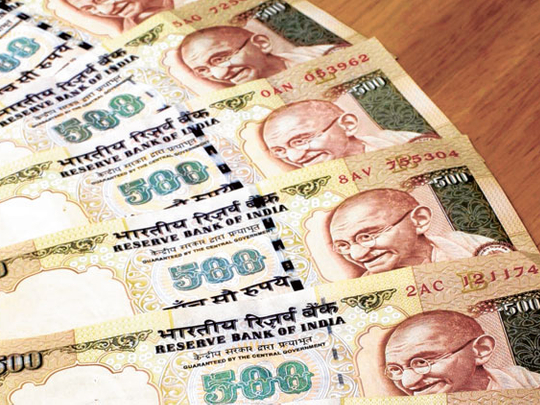
Abu Dhabi: A slowdown in India's gross domestic product (GDP) growth in the fiscal year to March 2012 is likely to reduce inflationary pressures in the UAE as the bulk of its imports come from the South Asian nation, but that won't significantly impact global economic activity, local experts have said.
India's central bank on Tuesday said growth will slow to 7 per cent this fiscal year, but left interest rates unchanged as it struggles to balance a toxic mix of high inflation and a flagging economy.
Substantial cut
The Reserve Bank of India's (RBI) new growth projection is a substantial cut from its October forecast of a 7.6 per cent increase in economic activity for the year to March 2012. The downgrade reflects weakening global growth as well as domestic policy paralysis, high inflation and dwindling investment. Last fiscal year, India's economy grew 8.5 per cent.
"India's economy estimated at $1.84 trillion [Dh6.75 trillion] in 2011 accounts for 2.63 per cent of global economic activity in nominal terms. The country consumes about 3.9 per cent of global liquid fuels. A slowdown in the Indian economy is not likely to impact global economic activity significantly," Giyas Gokkent, chief economist at National Bank of Abu Dhabi, told Gulf News.
Relatively high rates
He added: "India's real GDP growth is forecast to moderate from 8.5 per cent in 2010-11 to 7 per cent in 2011-12 and 6.5 per cent in 2012-13. These growth rates are still relatively high."
Pradeep Unni, senior relationship manager at Dubai-based Richcomm Global Services DMCC, told Gulf News the slowing economic growth in India may result in the weakening of its currency — the Indian rupee.
"[A] weaker rupee will make imports from India, far cheaper," he added.
The Reserve Bank of India cut the cash reserve ratio — the percentage of cash commercial banks must keep on hand — by half a percentage point to 5.5 per cent. That should add Rs320 billion (Dh23 billion) to India's cash-strapped banking system.
"Global inflationary pressure is subdued and this should provide space for gradual monetary easing as other emerging economies are doing. Easing is likely to occur in small incremental steps as RBI would want to assess the impact of its policy changes," Gokkent said.











